‘Digital India’: Reading Between the Lines
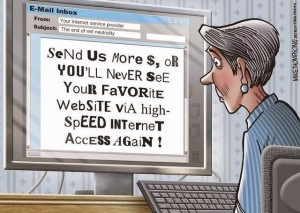 A few months back, the country witnessed a popular outpouring in favour of Net Neutrality, with thousands of citizens signing petitions and sharing campaign videos online. Net Neutrality– the principle that all Internet services, websites, applications, etc. be made available to Internet users by Internet service providers, without favouring or blocking any particular service– really caught the imagination of Internet users in India who collectively rose up to oppose a ‘document’ released by the Telecom Regulatory Authority of India (TRAI) which suggested different pricing for voice calls over the Internet. The suggestion would be akin to charging users more for, say, Whatsapp, than TrueCaller, for the same amount of data consumed. The longish document was clearly brought out at the behest of mobile service providers such as Airtel which, to protect their own monopoly over voice calling, wanted to charge Internet users differently for voice calls and charge them not only by the amount of data consumed, but also by the type of service provided.
A few months back, the country witnessed a popular outpouring in favour of Net Neutrality, with thousands of citizens signing petitions and sharing campaign videos online. Net Neutrality– the principle that all Internet services, websites, applications, etc. be made available to Internet users by Internet service providers, without favouring or blocking any particular service– really caught the imagination of Internet users in India who collectively rose up to oppose a ‘document’ released by the Telecom Regulatory Authority of India (TRAI) which suggested different pricing for voice calls over the Internet. The suggestion would be akin to charging users more for, say, Whatsapp, than TrueCaller, for the same amount of data consumed. The longish document was clearly brought out at the behest of mobile service providers such as Airtel which, to protect their own monopoly over voice calling, wanted to charge Internet users differently for voice calls and charge them not only by the amount of data consumed, but also by the type of service provided.
If Internet users have to pay additional amounts of tariff for accessing certain websites than others, or, if certain services are more favourably priced than others, it is a violation of the principle of Net Neutrality. If an Internet service provider assigns different speeds to different services; or, if certain services are available only over a certain connection, that too violates the principle of Net Neutrality.
Modi’s ““Digital India”” campaign is, as usual, high on rhetoric, low on substance and full of opacity. Saint Zuckerberg uses the language of “access” to deprive people from exactly that– access. In the name of bringing “civilisation” to us, third-world mortals, Saint Zuckerberg is out to colonise our cyber-space. It is important to remind both Modi and Zuckerberg that they do not own the Internet. The Internet is often termed as a ‘potential equaliser’, ‘leveller of inequalities’, etc. as it provides opportunities of being heard to the hitherto unheard. But, in reality, corporate monopolies on the Internet work against this very vision. Most of the world’s Internet usage is dominated by a few big businesses, and programmes such as “Free Basics” are an attempt to only further concentrate power in their hands. Paid content on websites such as Facebook and Twitter ensures higher visibility for some content while disadvantaging other content- sponsored Twitter trends, suggested tweets appearing on timelines of individuals, sponsored Facebook posts, etc. are a few examples. In order to post comments, various websites require users to authenticate themselves using Facebook or Twitter (rather than, say, using any email service). This furthers the monopoly of these corporate giants.
Facebook‘s doublespeak on universal Internet coverage exposed: Facebook CEO touted the “Internet.org” which was later renamed as “Free Basics” as being synonymous with Internet access. However, the hollowness of these claims is exposed when one finds that even this so-called “Free” and “Basic” Internet can be accessed only through one particular Internet service provider- the Ambani group owned Reliance! When accessed over Internet connections other than Reliance, it shows the message: “As of now, Free basics can only be accessed over a Reliance Sim card. If you want to use Free Basics on your existing mobile operator, kindly let us know.” Following is a screenshot of the same:
So in reality, what Facebook seeks to provide through this application is a highly watered down version of the Internet, confined to Facebook and a few other services. This initiative was highly criticised by activists all over the world who are working to provide a free and open Internet access to people on the other side of the digital divide.
Free and Open: What should a truly “Digital India” look like? Can India’s poor be a testing ground for corporate giants who want to impose their own version of a narrow, severely restricted Internet? If there is an Internet or a “Digital India” that is worth fighting for, it can only be an Internet that is FREE AND OPEN. The Internet is a large universe beyond Facebook and Twitter, etc. However, Modi’s flawed vision of “Digital India” is extremely alarming. As the head of a developing nation, our government ought to ensure access to high-speed broadband, unrestricted Internet service and updated hardware for all Indian citizens. There is no shortcut to dignified access. What Modi has chosen to do, instead is, partner with a few self-interested companies, bypass the interests of citizens while favouring corporate interests and violating key principles guiding the Internet: “Access, Net Neutrality, Innovation, Opportunity and Privacy”.
Internet access can never be synonymous with Facebook access. Taking undue advantage of the lack of access of Indians to the Internet, Facebook access is being showered upon us, as if it were a blessing from heaven; whereas in reality, what is being shoved down our throats is access to Facebook and a few other services over a Reliance Internet connection. In this way, Modi government is showering undue benefits over those who cry “free market” before they have gained entry into a certain country, and who, after gaining entry, want to monopolise the so-called “free” market. Why this doublespeak on “free market” and “monopoly” at the same time? In the name of access, users are being guided to think in a certain way. Users are being trained to think of the Internet as only a few social media sites, because an unrestricted Internet provides radical possibilities for social change- which tyrannical governments do not desire.
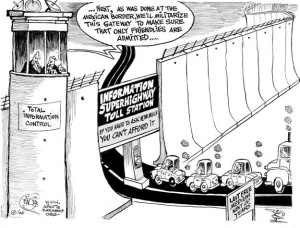 Iran has already started its project of a “sharia-compliant” Internet. Modi’s “Digital India” will be, in many ways, more restricted than the sharia-compliant Internet. It will infantilize the entire Indian population by imposing some sort of “parental control” over the choices that we make. It will be like a television set where we cannot change channels. Other, smaller Internet start-ups, will be coerced into partnering with “Free Basics” and only those capable of paying the entry fee can be accessed by ordinary users. In this way, Facebook gets to be the guardian, regulator and gatekeeper of the Internet, deciding who can access what and for how much price. It will even violate the sovereignty of the country, as Facebook will now regulate what Indian users can view and what they can’t view. Facebook will become a Zamindar (landlord) who has the power to levy taxes from smaller startups who wish to have their services accessed by people.
Iran has already started its project of a “sharia-compliant” Internet. Modi’s “Digital India” will be, in many ways, more restricted than the sharia-compliant Internet. It will infantilize the entire Indian population by imposing some sort of “parental control” over the choices that we make. It will be like a television set where we cannot change channels. Other, smaller Internet start-ups, will be coerced into partnering with “Free Basics” and only those capable of paying the entry fee can be accessed by ordinary users. In this way, Facebook gets to be the guardian, regulator and gatekeeper of the Internet, deciding who can access what and for how much price. It will even violate the sovereignty of the country, as Facebook will now regulate what Indian users can view and what they can’t view. Facebook will become a Zamindar (landlord) who has the power to levy taxes from smaller startups who wish to have their services accessed by people.
We must not forget that the same corporate giants who are part of the ““Digital India”” and “Free Basics” projects are also the same companies that have been exposed by Edward Snowden (NSA leaks) for dutifully obeying the US government’s requests for user information, that have helped the US spy on heads of sovereign governments abroad, that have time and again sold our information to third-parties who then spam us with unwanted advertisements. A project like “Digital India” will empower these companies even more to jointly conduct thought-experiments on the Indian population, feed particular ideologies to them and guide their thought process. It is a typically fascist arrangement wherein millions of poor Indians will serve as guinea pigs, thinking that they have been empowered, whereas in reality, they have been put under a new surveillance regime. ““Digital India”” will be like a massive laboratory where behavior will be studied, monitored and the resulting conclusions used for even more sinister projects.
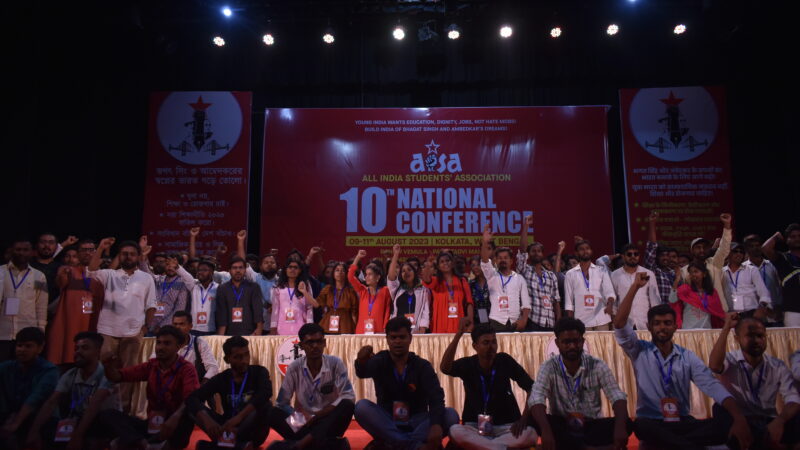
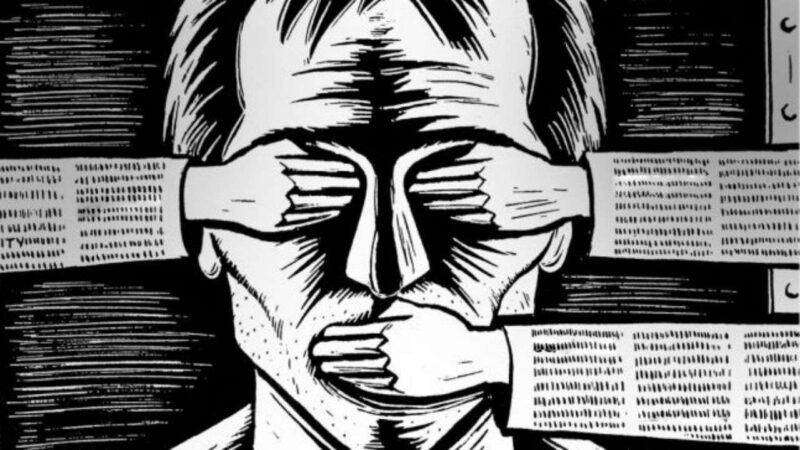
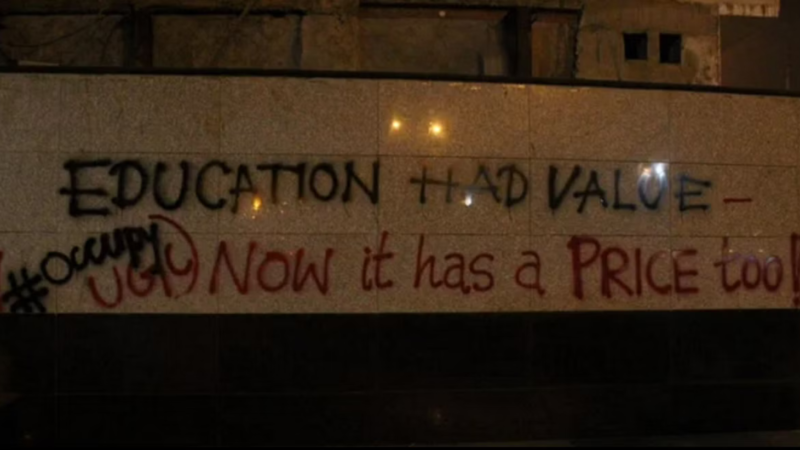
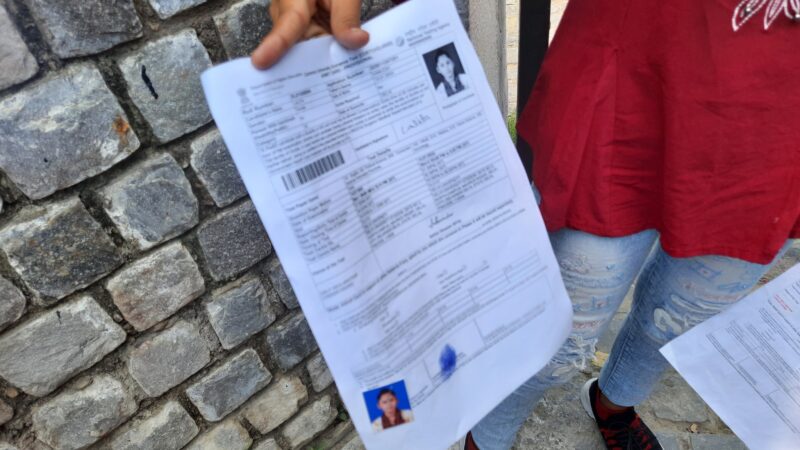
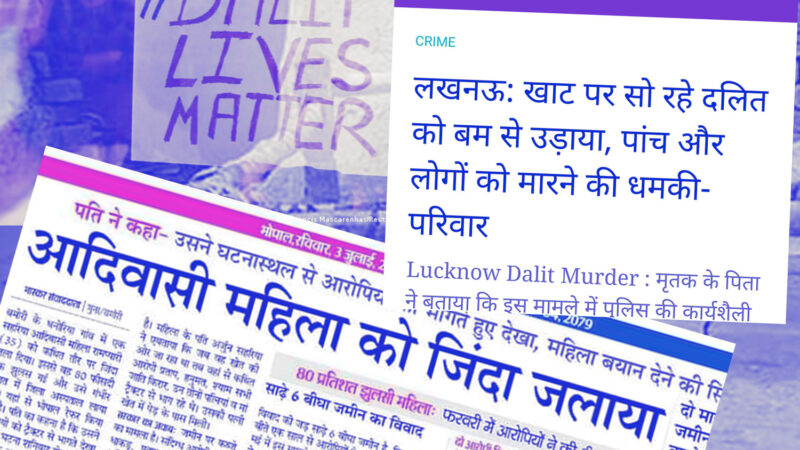
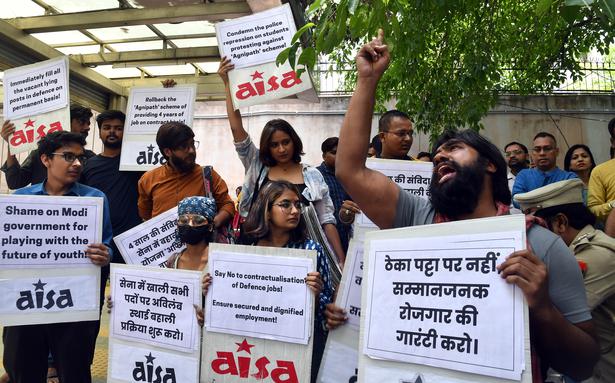
It’s a shame you don’t have a donate button! I’d definitely donate to this
superb blog! I suppose for now i’ll settle for book-marking and adding
your RSS feed to my Google account. I look forward to new updates and will talk
about this site with my Facebook group. Chat soon!